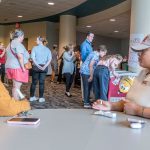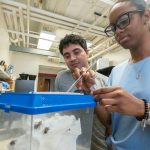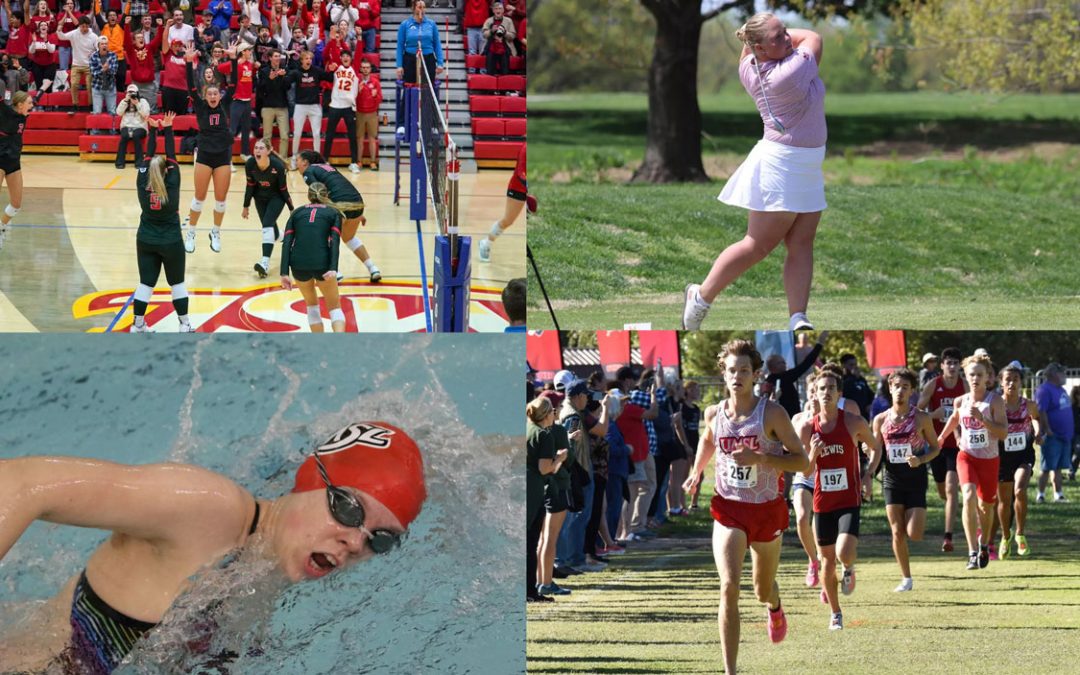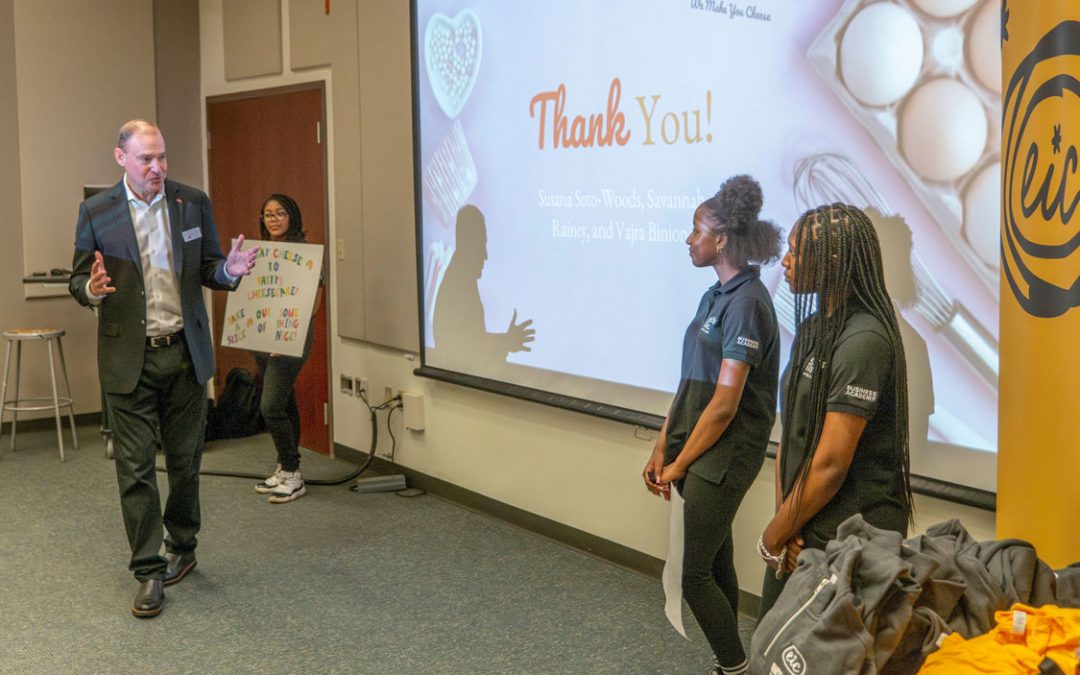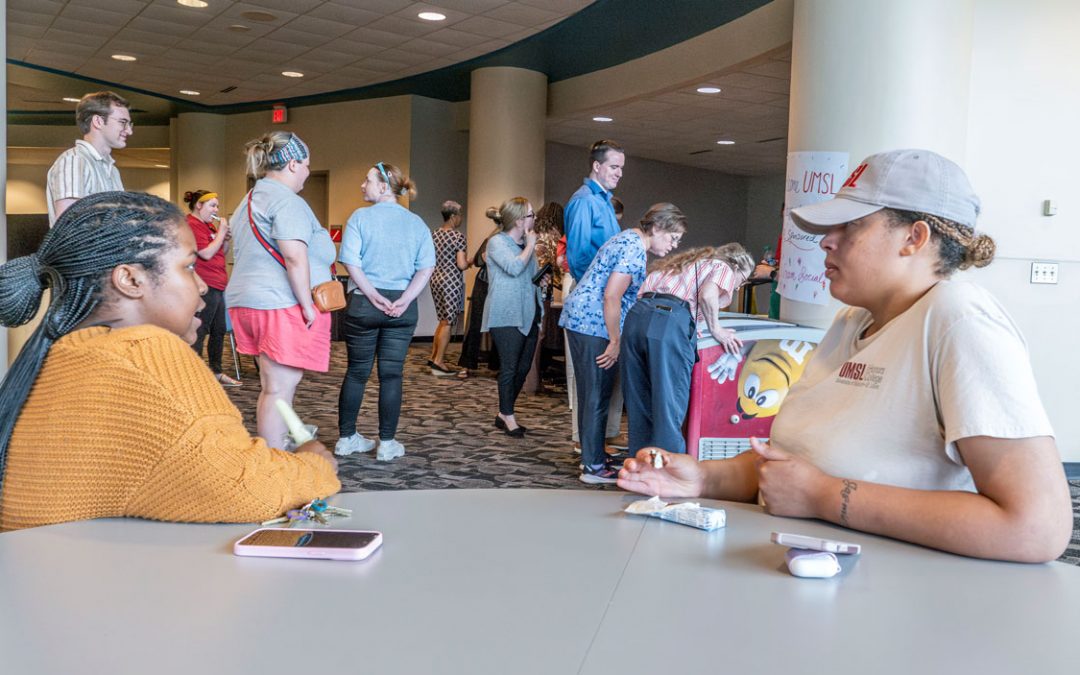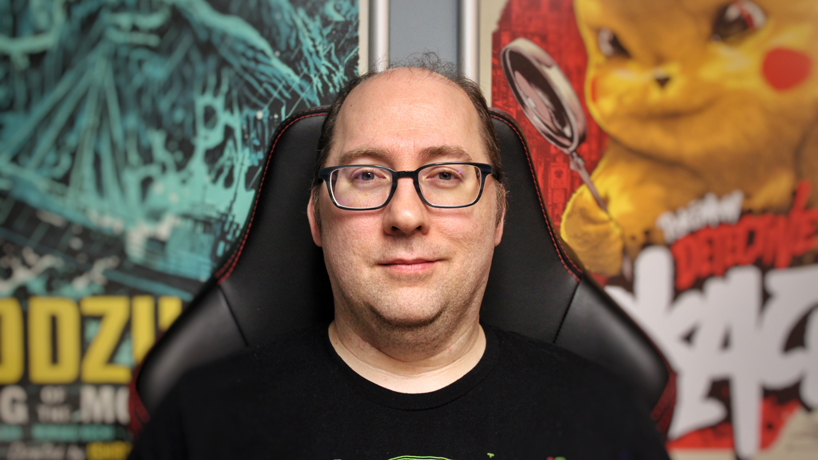
Jason Hoeft, manager of Emerging Technologies and lifelong gamer, has been laying the groundwork for an esports club where students can game together and share their own interests in video games. To gauge interest in the club, he sent out a survey that ultimately received more than 400 positive responses. Since then, he’s been getting feedback from students, running the UMSL esports Twitter account and working on creating a virtual meeting place for prospective members. (Photo courtesy of Jason Hoeft)
From an early age, Jason Hoeft had an interest in video games.
From watching his father play BurgerTime on the Mattel Intellivision to working at 14 to earn enough money for his first TV and Sega Genesis, gaming has been a lifelong passion for Hoeft.
Now Hoeft, manager of Emerging Technologies at University of Missouri System Office of eLearning, wants to create a space at the University of Missouri–St. Louis for fellow gamers. For the past two years, he has been laying the groundwork for an esports club where students can game together and share their own interests in video games.
Since the time of Sega Genesis and the Nintendo Entertainment System, video games have evolved from simple side scrolling adventures to beautifully rendered, immersive worlds. Their popularity has steadily increased, as well, saturating popular culture and leading to new subcultures, YouTube and Twitch channels dedicated to gaming and professional esports leagues.
In recent years, many high schools and colleges have responded to the ever-growing interest in gaming by starting esports clubs and teams.
“I personally started getting involved around late 2018,” he said. “That is when I started noticing more schools getting into esports. I saw it at Maryville University – everybody drops Maryville as a big example. I started noticing even high schools getting involved in esports.”
There have been several iterations of esports clubs at UMSL over the years, but none have stood the test of time. Hoeft is hoping to create something more permanent. He believes the club would enrich campus life and also play a role in attracting prospective students.
“At an admissions level, we’ll start seeing kids come in and say, ‘Well, where’s your esports team?’” he said.
Sensing an opportunity, Hoeft approached Jane Williams, UMSL chief information officer at the time, about the possibility of starting an esports club. He also asked about potentially exploring new technologies such as virtual reality, augmented reality, 3D printing and robotics down the road.
Williams agreed that it would be worth pursuing and encouraged Hoeft to start working on the project in late 2019. Around that time, the UM System absorbed Emerging Technologies, which had been housed at UMSL.
It was a pleasant change followed quickly by a shocking one.
“Then of course, 2020 hit,” he said referring to the COVID-19 pandemic. “I was still on campus working on esports until March. We started working from home and some things have been put on hold. I’ve been working behind the scenes, talking with students, sending information out and creating the UMSL esports Twitter account and running that.”
The idea for a survey came out of a discussion with Kevin Reape, general manager of Mizzou Esports at the University of Missouri–Columbia. The two talked about how Mizzou Esports started, and Reape wondered if there would be enough interest to make a club at UMSL sustainable. Hoeft put together a short survey to answer that question.
He was told that 50 responses would be considered a success.
“We actually got over 400 responses,” he said. “That was a defining moment where it was like, ‘OK there is interest.’ The students are looking for something like this, especially if they’re coming from high school where there are video game clubs and there are esports clubs. They’re coming to UMSL, and they’re looking for that experience, as well.”
While the survey was simple, it yielded a great deal of valuable information. Students showed a broad range of interests related to gaming. Some expressed a desire to play on a competitive team, while others had more casual interests and wanted to connect with peers. Still, others were interested in computer programming and had career aspirations for the video game industry.
Considering the responses, Hoeft said the goal is to start with a club and then gradually move toward a completely developed varsity esports team.
If UMSL is able to achieve the latter, Hoeft said the team would consider competing in a variety of multiplayer games such as: League of Legends, a battle arena game that balances action and strategy; Rocket League, a high-speed vehicular soccer game; Overwatch, a team-based first-person shooter set in a futuristic world; and Valorant, another team-based first-person shooter.
Ideally, UMSL would carve out a niche in one of the games like the successful collegiate teams at MU and Maryville, which have been torch bearers in the esports arena the past several years. Mizzou Esports has excelled at Rocket League and is competing in the Collegiate Rocket League National Championship this week.
It will likely be some time before UMSL is churning out professionals and winning championships, but Hoeft said it shows that the region is building a vibrant esports culture. For now, the next steps are to gather more information and establish a virtual venue where prospective members can meet.
Hoeft is working to create a second, in-depth survey for respondents of the first, which will identify what games they prefer. From there, the plan is to set up a Discord – a digital platform for creating communities where users communicate with voice calls, video calls, messages, media and files.
There are still some unknowns, but Hoeft is optimistic the club will start to take shape by the start of next school year.
“I’m hoping to bring something to the campus that isn’t just for a group of individuals that are diehard esports fans,” he said. “I’m wanting to bring something that’s a little broader. Something that esports fans will enjoy with that competition, but we’ll also be talking to and wanting to include individuals who are more into the casual games, whether it’s Animal Crossing or Pokémon GO.”
If you are interested in learning more about UMSL esports or have questions, please contact Jason Hoeft at esports@umsl.edu or follow the UMSL esports Twitter @umslesports.





